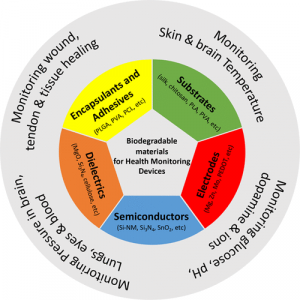The phrase ‘for the greater good’ has been used to justify many actions over hundreds of years including some horrific events occurring in Germany and Poland during World War II which eventually led to some revolutionary scientific discoveries that hugely benefited the medical and science worlds; but do the ends really justify the means and is it okay to turn a blind eye when sourcing medical material if the work conducted leads to improving and saving the lives of many?
I am very passionate about both history and medicine and after our ethics and law lecture focused on bioethics and in particular highlighting some of the events and ethical dilemmas that occurred during World War II that led to great medical discoveries, I knew I wanted to look deeper into this topic and see just how far some people might go for the greater good, in the name of science.
Nazi Medical Experiments
It’s well known that prisoners of war are often not treated with basic human dignity but what surprised me is the shear volume of prisoners both in the past and present who fell subject to non-consensual medical experiments at the hands of known medical professionals all to advance the science world.

Max Clara was the first Nazi Physician I came across who’s medical work lead to the discovery of Clara cells, which line the airways of the lungs. These cells have since been labelled as key to protecting the airways from environmental exposures and have been a focus when researching respiratory diseases but the initial discovery did not stem from an ethical route. Clara and his team conducted experiments on Jewish prisoners both dead and alive with no consent given for these experiments. Clara believed that the medical material would otherwise be going to waste and so the best outcome would be to put it to good use and experiment on the prisoners.
Modern Day Non-Consensual Experimentation
This all might seem like historic events but ethical violations occur in todays worlds. The Chinese government has set up 85 ‘re-education’ camps since 2017 in order to suppress the Uighur Muslim minority in Xinjiang with more than 1.8 million muslims imprisoned. In 2018, a former worker came forward and revealed some of the horrific events she witnessed including prisoners that were gang raped, tortured and forced to undergo medical experiments including live organ transplants and drug testing in ‘Nazi-like’ procedures. It’s known that the way in which Nazi physicians conducted their experiments is not condoned but their work still produced great scientific discoveries. With this in mind, does that mean that although the way in which China is treating their prisoners is not condoned, if good scientific research/ discoveries result from the imprisonment, will it be accepted by the scientific community and more-so the world?
Do the ends justify the means?
In the case of Max Clara, I believe the ends certainly do not justify the means. the justification that the material would otherwise go to waste it just not sufficient in my eyes. Even after death, I believe the human body should be treated with respect. In countries like England, organ donation and human experimentation after death has to be approved by either the donor or their appointed family and so why should the wishes of a prisoner differ, especially a prisoner who still has their life?
After doing extensive research into this topic I have discovered that a lot of current medical information has stemmed from extremely unethical sources but the issue at play is at what point do you draw the line and say ‘no, I cannot accept this research regardless of the implications it will have on people due to the foundations of your experimental research?’ At what point do you say ‘no, for the greater good is just not an acceptable justification for your research’.







This is an initially reflective and well researched blog showing how you have chosen to explore the emerging field of…
This is a good attempt at a blog, where you reflect on your recent learning at a lecture/workshop to describe…
This is a fair to good blog, reflecting on your recent learning in some of your modules. You provide a…
This is an engagingly written and reflective blog focussed in general on ethics in medicine. You might improve by citing…
This is a good and well written an presented blog on an original subject - biofilms on implants. You explain…